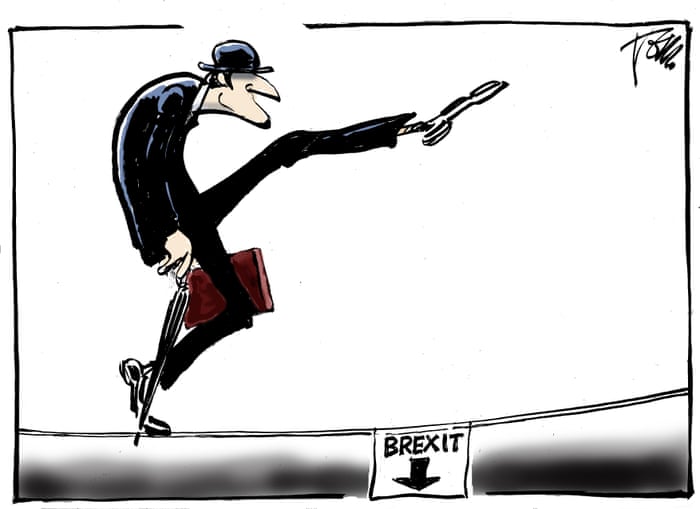2015 photo from theguardian
The text below was adapted from an
article published in theguardian, dated Sunday 17 July
2016 (click HERE), written by
Sadiq Khan.
Close partnership and innovative approaches are
needed to curb the rising numbers of homeless people inherited from the
Conservative administration of London. I am committed to tackling London’s
housing crisis in whatever form it takes – and the rise in rough sleeping over
recent years is a growing source of shame that we have a moral imperative to
stop.
People end up on the street for many different
reasons – leaving care or hospital, problems with debt, unemployment, mental
health, family breakup – and so the help they need is varied too. We can
support some rough sleepers, particularly when they have become homeless
recently, through programmes such asNo Second Night Out.
In more entrenched (i.e. long-term) cases regarding
homeless people, a more intensive intervention may be needed, as a
one-size-fits-all (i.e. one solution to all problems) approach does not always
work. We can promote innovative approaches by making our funding of agencies
that help homeless people conditional on these agencies achieving results – an
approach that has proved successful in helping people access and remain in
stable accommodation.
But, crucially, we need not only to help rough
sleepers on the street, but also to prevent people from becoming homeless in
the first place – and that’s why I’ll be launching a No Nights Sleeping
Roughtaskforce with prevention central to its approach. This taskforce will
bring together all the agencies to tackle rough sleeping as we will only make a
difference through close partnership. The taskforce will set the strategic
priorities for services the mayor provides, come up with proposals for new
initiatives and projects, and lobby government for the changes we need.
A Labour mayor and government dramatically reduced
rough sleeping at the start of this century and I’m determined we’ll do it
again. Making a difference won’t be easy, but I will lead the way.
To do:
1) Listen to the teacher read and comment the article,
noting pronunciation, vocabulary and expressions, and summarising the main
points of the article.
2) Read the following information on theguardian:
theguardian is a British
national daily newspaper. It was founded in 1821. It is edited by Katharine
Viner. It is part of an international media group which includes The
Observer (a British Sunday paper) and The Guardian Weekly (an
international roundup of articles from various papers). In 2013, The
Guardian's print edition had an average daily circulation of 189,000
copies, behind The Daily Telegraph and The Times,
and ahead of The Independent. The newspaper's online edition was
the fifth most widely read in the world as of October 2014, with over 42.6
million readers. In the UK, its combined print and online editions reach
9 million readers. The Guardian was named newspaper of the
year at the 2014 British Press Awards for its reporting on
government surveillance.
3) Answer the following question:
What type of people read The Guardian do
you think?
4) Translate the title:
"London is the world’s greatest city; we cannot
sit back and do nothing about the rough sleeping crisis."
5) Read the following information about Sadiq Khan:
Sadiq Aman Khan (born 1970) has been Mayor of London
since May 2016, succeeding Conservative Party Mayor Boris Johnson. Khan was the
Member of Parliament (MP) for Tooting from 2005 to 2016. He is a member of the
Labour Party. His election as Mayor of London made him the city's first ethnic
minority mayor, and the first Muslim to become mayor of a major Western
capital. As mayor he has limited charges on London's public transport and
focused on uniting the city's varied communities. He was an active supporter of
the unsuccessful Britain Stronger in Europe campaign to retain
the United Kingdom's membership of the European Union.
6) Answer the question:
Why does Khan describe London as “the world’s
greatest city”?
7) Read the following information about the Labour
Party:
The Labour Party is a centre-left political party in
the United Kingdom. Growing out of the trade union movement and socialist
parties of the nineteenth century, the Labour Party encompasses a diversity of
ideological trends from strongly socialist to moderately social democratic
(social democracy includes the belief in collective responsibility for social
welfare). Founded in 1900, the Labour Party overtook the Liberal Party as the
main opposition to the Conservative Party in the early 1920s, forming governments
under Ramsay MacDonald in 1924 and from 1929 to 1931. Labour later served in
the wartime coalition from 1940 to 1945, after which it formed a majority
government under Clement Attlee. Labour was also in government from 1964 to
1970 under Harold Wilson and from 1974 to 1979, first under Wilson and then
James Callaghan. The Labour Party was last in government from 1997 to 2010
under Tony Blair and Gordon Brown. Having won 232 seats (out of 650) in the
2015 general election, the party is the Official Opposition in the Parliament
of the United Kingdom. In September 2015, Jeremy Corbyn was elected Leader of
the Labour Party.
8) Question:
Why does Khan want to solve the problem of rough
sleeping?
9) Read the following information about sleeping
rough in London:
According to the CHAIN (Combined Homelessness and
Information Network) database, 8,096 people slept rough at some point in London
during 2015/16, an increase of 7 per cent compared to 2014/15 (though these
figures are probably an underestimate). 57 per cent are aged between 26 and 45
years with 1 in 10 under 25 and 11 per cent over 55. 43% have problems due to
alcohol, 31% have problems due to drugs, and 46% have mental health problems.
32% had served time in prison. 41% are UK nationals, 37% are from Central and
Eastern European countries, 2% are refugees from Eritrea and Somalia. About 15%
of rough sleepers in London are women (many have been physically attacked,
verbally abused and sexually assaulted). Reasons men end up on the streets
include: relationship breakdown, substance misuse, and leaving an institution
(prison, care, hospital, etc.). Reasons women end up on the streets include
physical or mental health problems and escaping a violent relationship. Social
causes include: high levels of poverty, unemployment, the inadequate benefits
system, lack of affordable housing and poor management of social (council)
housing. Emergency accommodation includes: cold weather or winter shelters,
night shelters, emergency hostels, nightstop schemes for young homeless people
aged 16 to 25, women's refuges for women fleeing domestic violence.
10) Questions:
> What do you think the consequences of sleeping
rough are on individuals?
> What do you think the consequences for London
are of having people sleeping rough?
> Is there a problem of people living on the
streets in the area you live?
> What solutions to solving the problem of
homelessness can you come up with?
Further research:
> Article from The Mirror: There are 10 empty homes for
every homeless family in England
> How do I... help rough sleepers.
> How do I... help rough sleepers.













